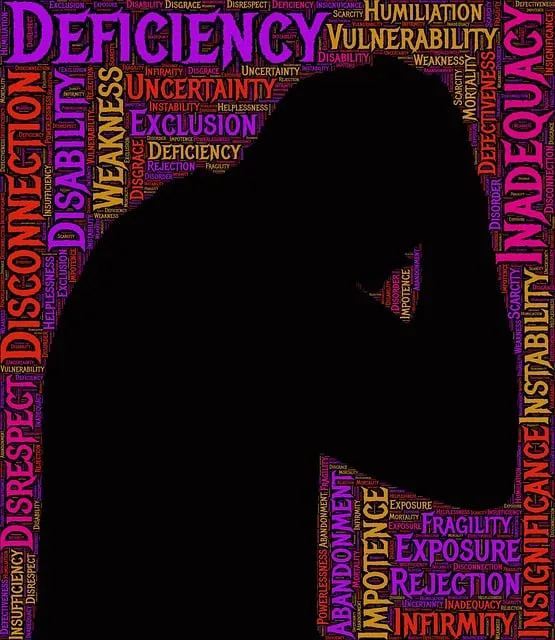The Lakewood Kaiser mental health programs prioritize cultural sensitivity as a key component of delivering effective care in a diverse society. Through comprehensive training and inclusive environments, they address unique community needs by recognizing cultural influences on mental health. Their approach combines traditional Western practices with alternative therapies, fostering open communication and understanding. By tailoring interventions to diverse backgrounds, these programs enhance trust, engagement, and clinical outcomes, ensuring every patient receives culturally competent care that supports their specific emotional well-being needs.
Cultural sensitivity is an essential aspect of providing effective mental healthcare, especially within diverse communities. This article explores the critical role of cultural competence in improving treatment outcomes and offers insights into best practices for clinical settings. We examine the case of Lakewood Kaiser Mental Health Programs as a model for delivering culturally sensitive care. By understanding the impact of cultural differences, mental health professionals can navigate challenges and create inclusive environments, ultimately enhancing patient well-being.
- Understanding Cultural Sensitivity in Mental Healthcare
- Lakewood Kaiser Mental Health Programs: An Overview
- The Impact of Cultural Competence on Treatment Outcomes
- Challenges and Strategies for Providing Culturally Sensitive Care
- Best Practices for Incorporating Cultural Sensitivity in Clinical Settings
Understanding Cultural Sensitivity in Mental Healthcare

Cultural sensitivity is a cornerstone in delivering effective mental healthcare, ensuring that services are tailored to meet the unique needs of diverse communities. It involves recognizing and appreciating the impact of cultural beliefs, values, and practices on an individual’s mental health experiences and expressions. In a multicultural society like ours, where individuals from various ethnic, racial, and socio-economic backgrounds seek support for their mental wellness, this understanding is paramount. For instance, Lakewood Kaiser mental health programs have successfully incorporated cultural sensitivity training to foster a safe and inclusive environment, reflecting the diverse makeup of their clientele.
This awareness extends beyond clinical practice, influencing the development of public awareness campaigns, mental wellness coaching programs, and community outreach initiatives. By integrating cultural competency into these programs, service providers can offer more targeted interventions that resonate with different communities. For example, Community Outreach Program Implementation strategies that consider cultural contexts can enhance access to mental health resources, ensuring that support is not only available but also culturally acceptable and beneficial.
Lakewood Kaiser Mental Health Programs: An Overview

Lakewood Kaiser Mental Health Programs offer a unique and comprehensive approach to addressing diverse mental health needs. These programs are designed to be culturally sensitive, acknowledging that each individual’s experiences and backgrounds significantly impact their emotional well-being. With a focus on holistic healing, the Lakewood Kaiser team provides tailored support for various issues, including anxiety relief and self-esteem improvement.
The mental health services incorporate traditional Western practices with alternative therapeutic methods, creating an inclusive environment. By fostering open communication and understanding cultural nuances, these programs aim to facilitate emotional healing processes. This approach respects the diversity of its clients, ensuring that everyone receives care tailored to their unique needs and backgrounds.
The Impact of Cultural Competence on Treatment Outcomes

Cultural sensitivity and competence are pivotal aspects of mental healthcare, significantly influencing treatment outcomes. When healthcare providers understand and respect the cultural backgrounds of their patients, it fosters a deeper level of trust and engagement. This is especially critical in diverse communities like Lakewood, where the Kaiser mental health programs have recognized the need for culturally tailored interventions.
By incorporating strategies such as Stress Reduction Methods and Mental Wellness Journaling Exercise Guidance, these programs aim to address the unique needs of different cultural groups. Resilience Building is another key component, helping individuals navigate life’s challenges with enhanced coping mechanisms that resonate with their personal values and beliefs. This holistic approach not only improves clinical outcomes but also ensures patients feel seen, heard, and understood, ultimately leading to more positive mental health journeys.
Challenges and Strategies for Providing Culturally Sensitive Care

Providing culturally sensitive care in mental healthcare is essential, especially within diverse communities like Lakewood, where Kaiser mental health programs aim to cater to a wide range of cultural backgrounds. One of the primary challenges lies in understanding and respecting different cultural beliefs, values, and practices related to mental health. This may include varying perceptions of what constitutes ‘mental illness’, unique coping mechanisms, and preferences for treatment approaches. For instance, some cultures prioritize community support and holistic healing methods, while others embrace Western psychiatric practices.
To overcome these challenges, healthcare providers should engage in continuous self-awareness exercises to recognize their own biases and assumptions. This can be facilitated through workshops and training sessions that focus on cultural competency. Encouraging open communication with patients, allowing them to share their cultural perspectives, is a powerful strategy. Additionally, incorporating Self-Awareness Exercises and Coping Skills Development into treatment plans can help bridge cultural gaps. For example, the Mental Wellness Podcast Series Production can offer culturally tailored content, ensuring that care remains sensitive, effective, and accessible to all.
Best Practices for Incorporating Cultural Sensitivity in Clinical Settings

Incorporating cultural sensitivity into clinical settings is paramount for delivering effective and compassionate mental healthcare. At Lakewood Kaiser mental health programs, best practices include actively seeking to understand a client’s cultural background, values, and beliefs, which can significantly influence their mental health experiences and expressions. Healthcare providers should encourage open communication, allowing clients to share their unique perspectives and concerns without judgment. This involves educating oneself about diverse cultures, including local communities’ specific needs and challenges, as highlighted by the Crisis Intervention Guidance for addressing cultural barriers.
Additionally, integrating culturally responsive practices into therapy sessions can foster trust and engagement. For instance, developing mental wellness coaching programs that incorporate traditional healing methods or incorporating elements from clients’ heritage during therapy can make treatment more accessible and meaningful. Self-care routine development for better mental health is another key aspect where cultural sensitivity plays a role, as it encourages individuals to maintain practices that align with their cultural beliefs and promote overall well-being.
Cultural sensitivity is an essential component of effective mental healthcare, as evidenced by the successful models presented by Lakewood Kaiser Mental Health Programs. By understanding and addressing cultural nuances, mental health professionals can significantly improve treatment outcomes. Navigating challenges through tailored strategies ensures a more inclusive and accessible clinical environment. Incorporating these best practices into routine care not only respects diverse communities but also fosters better relationships and enhanced therapeutic experiences for all patients, ultimately revolutionizing mental healthcare delivery.






